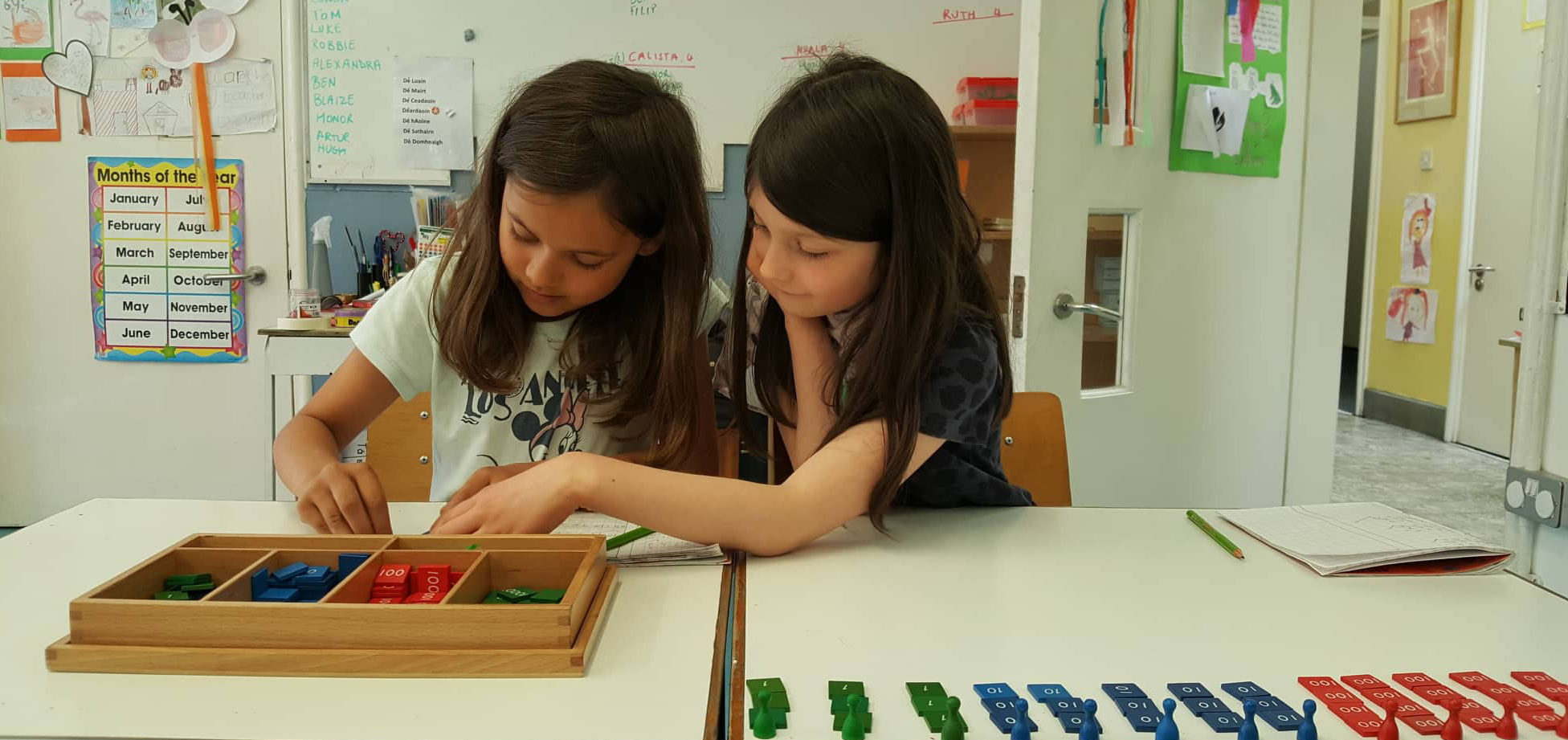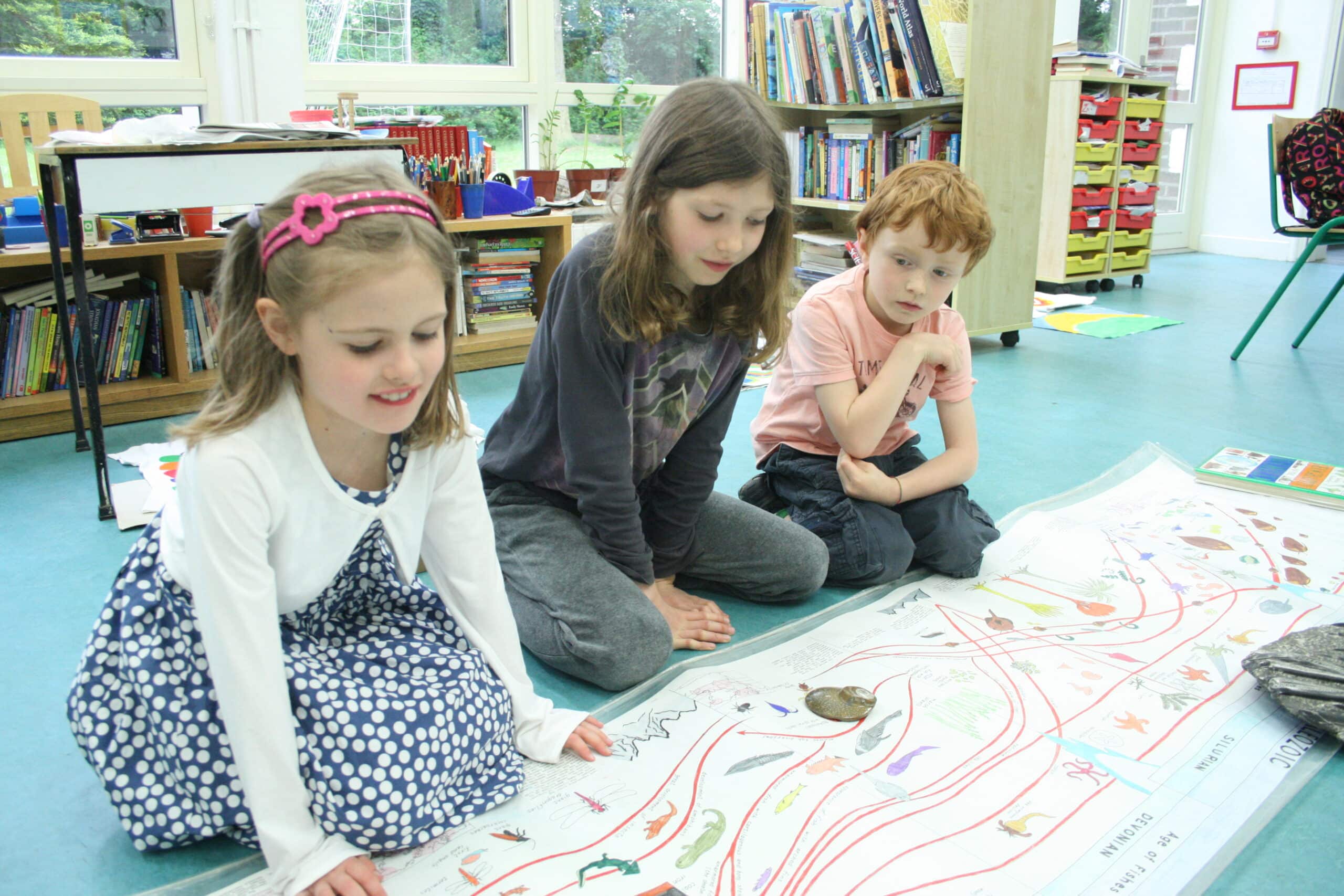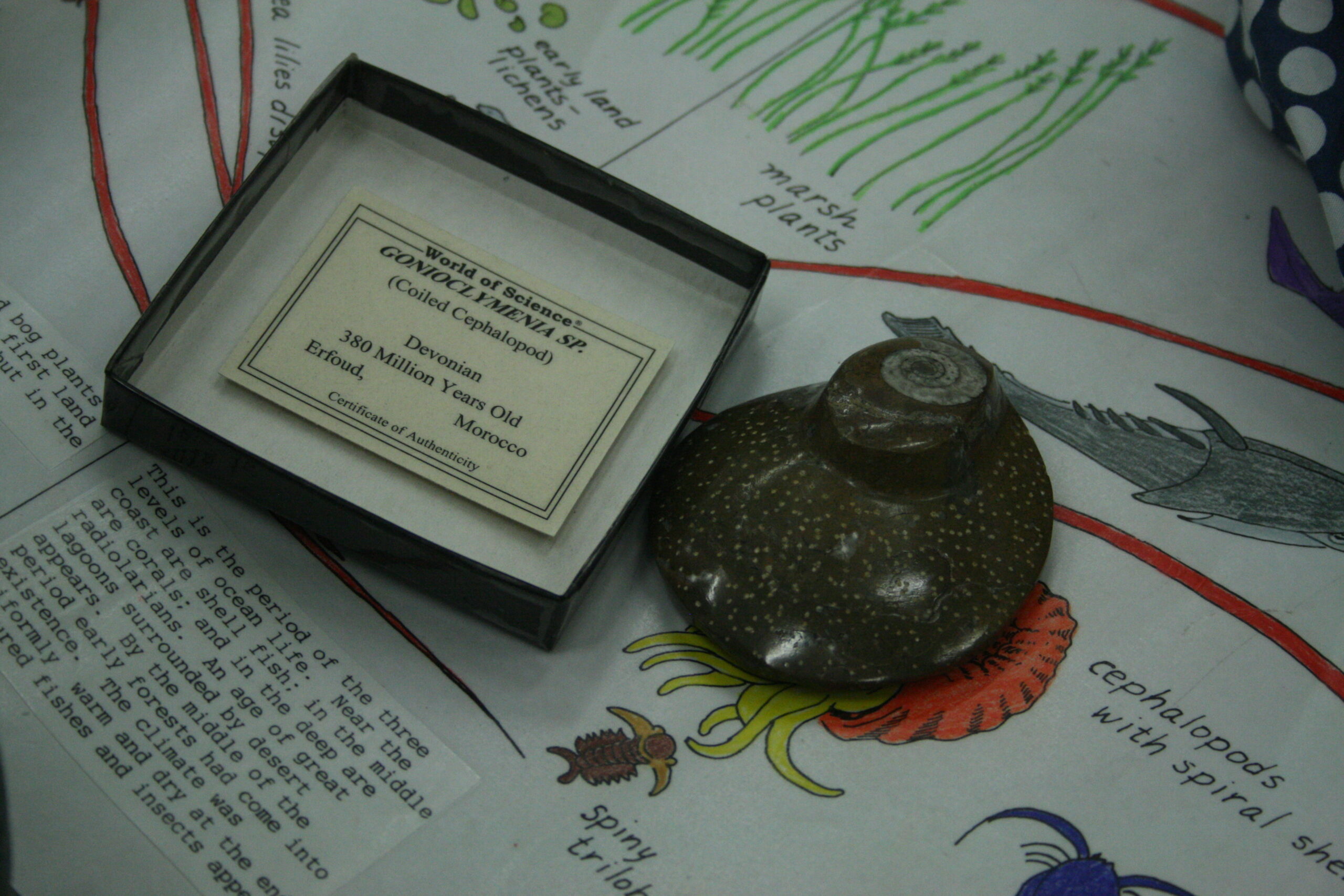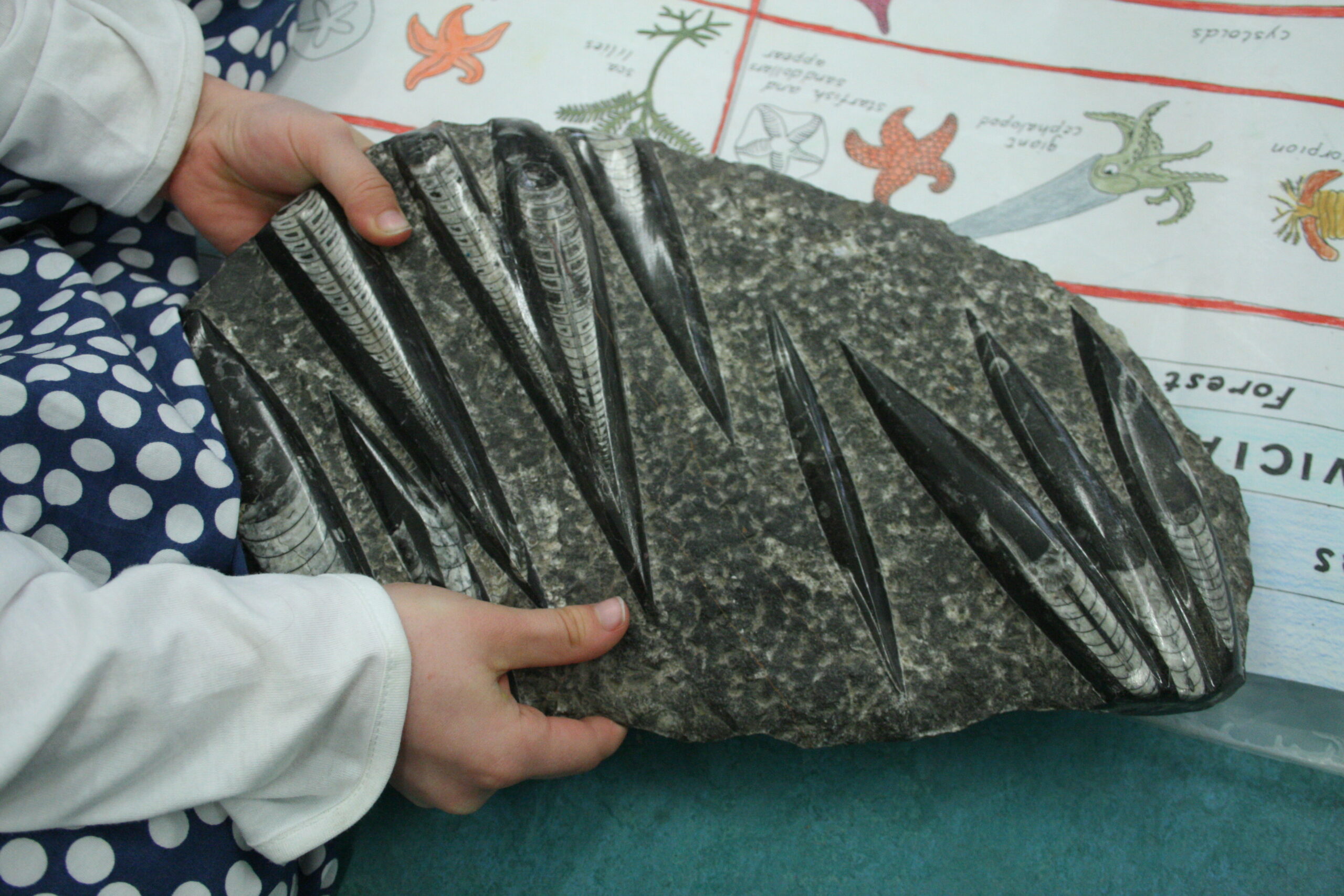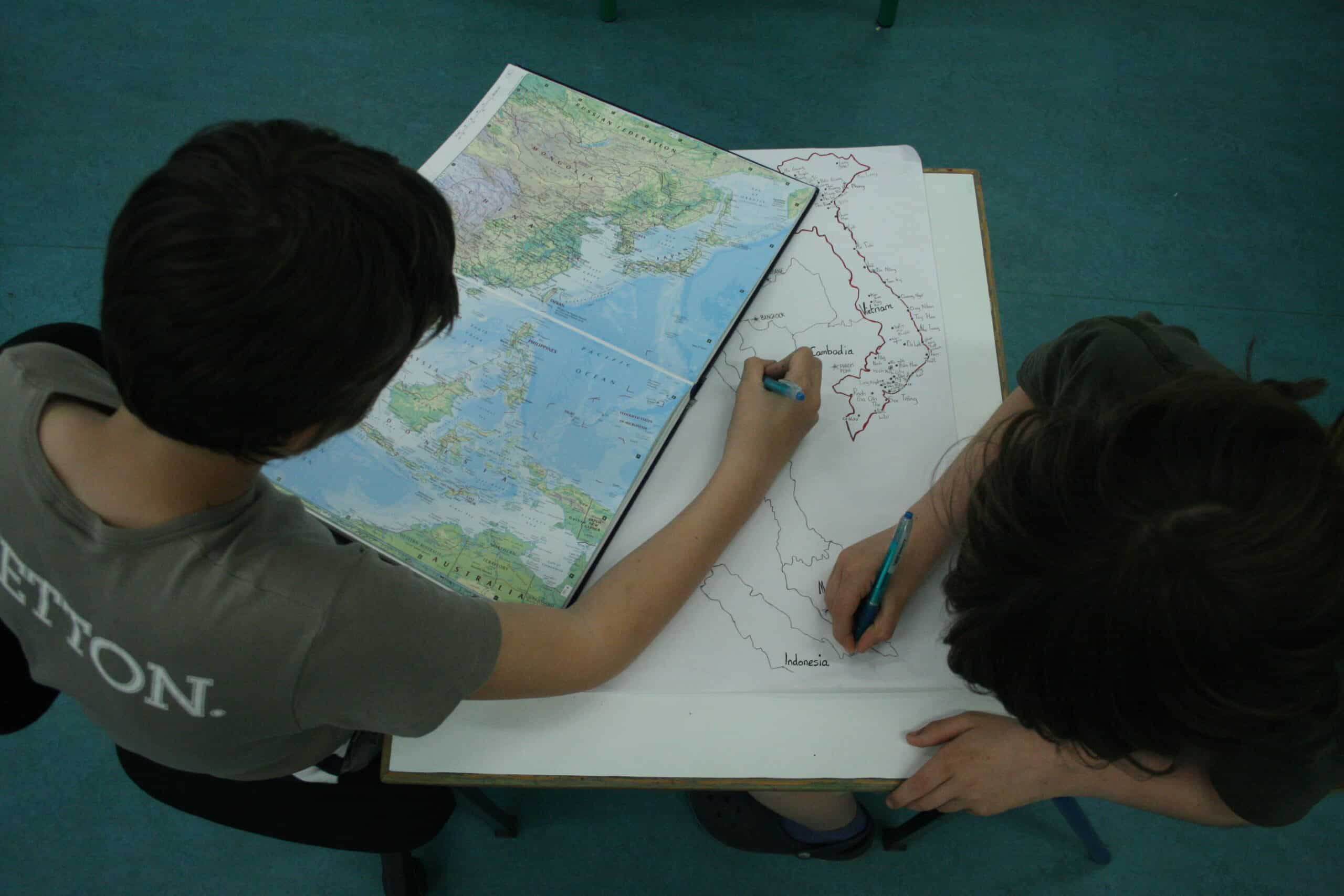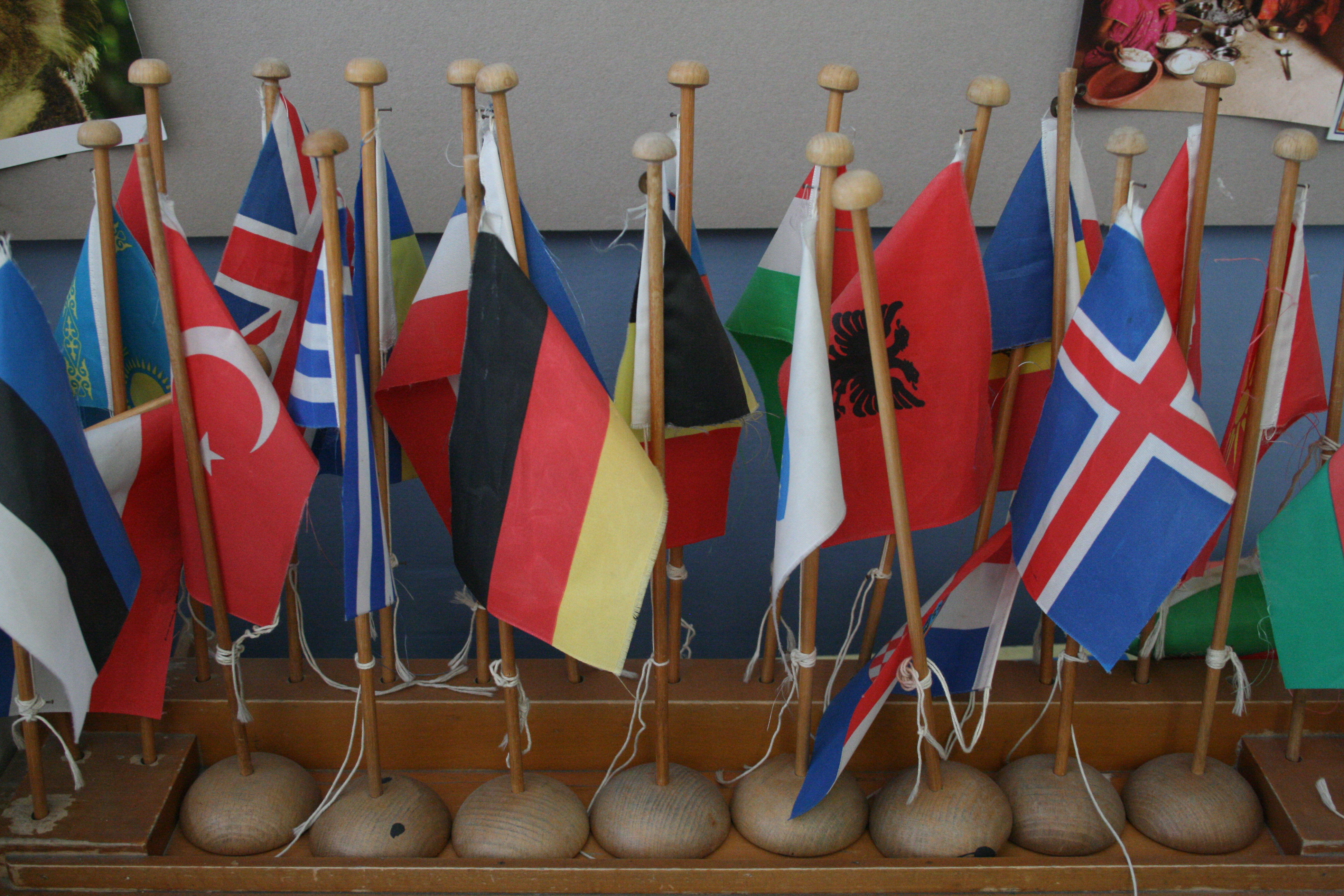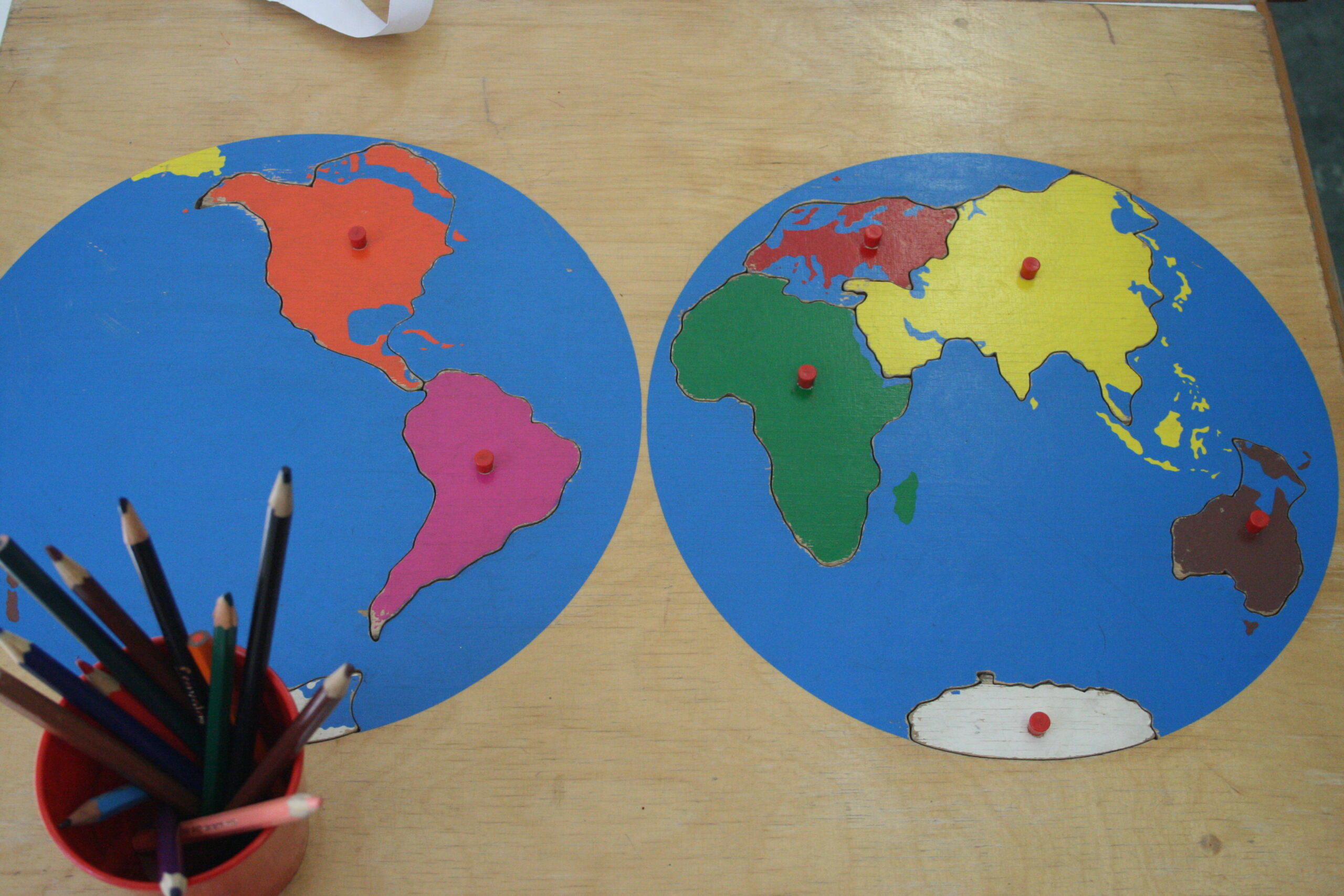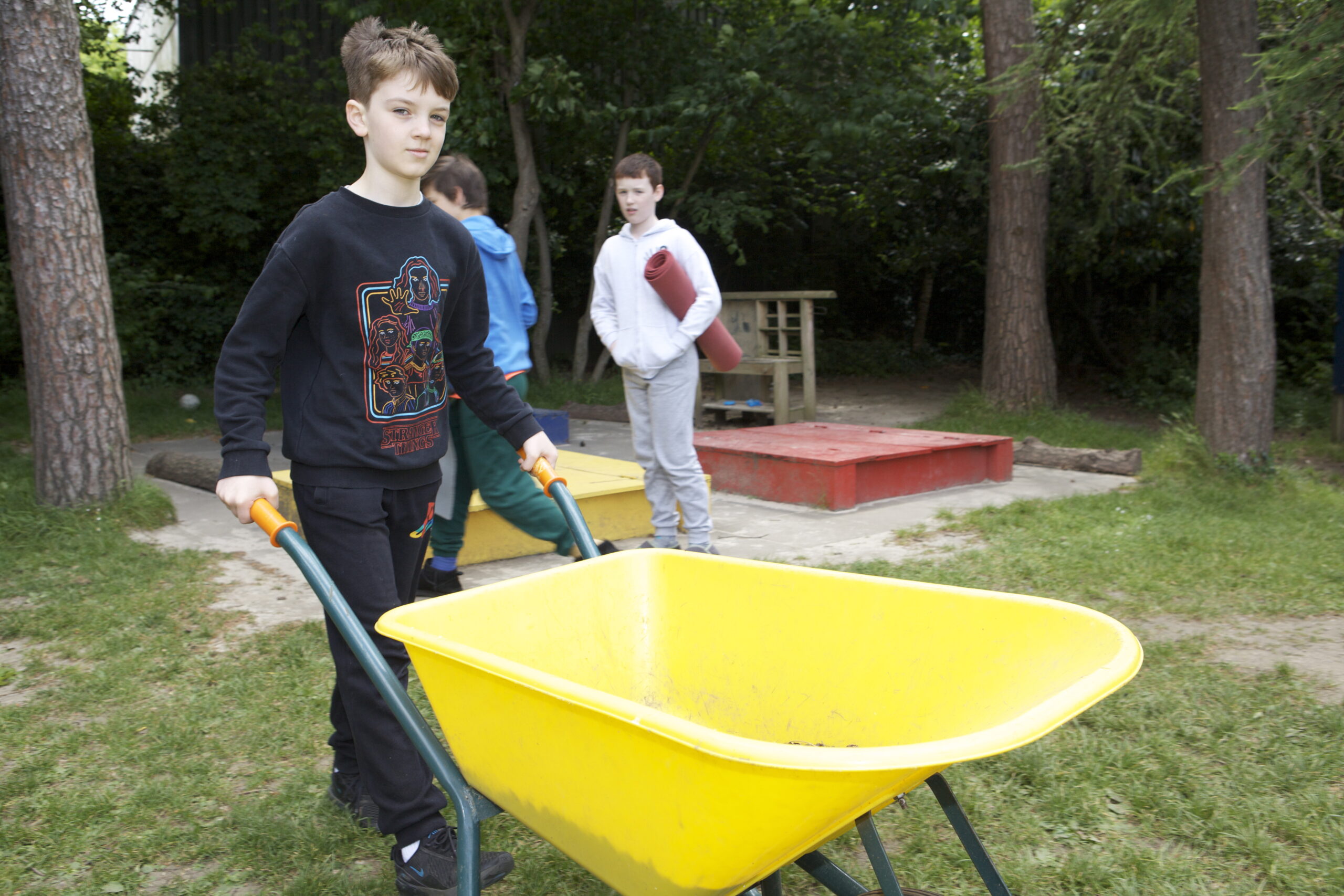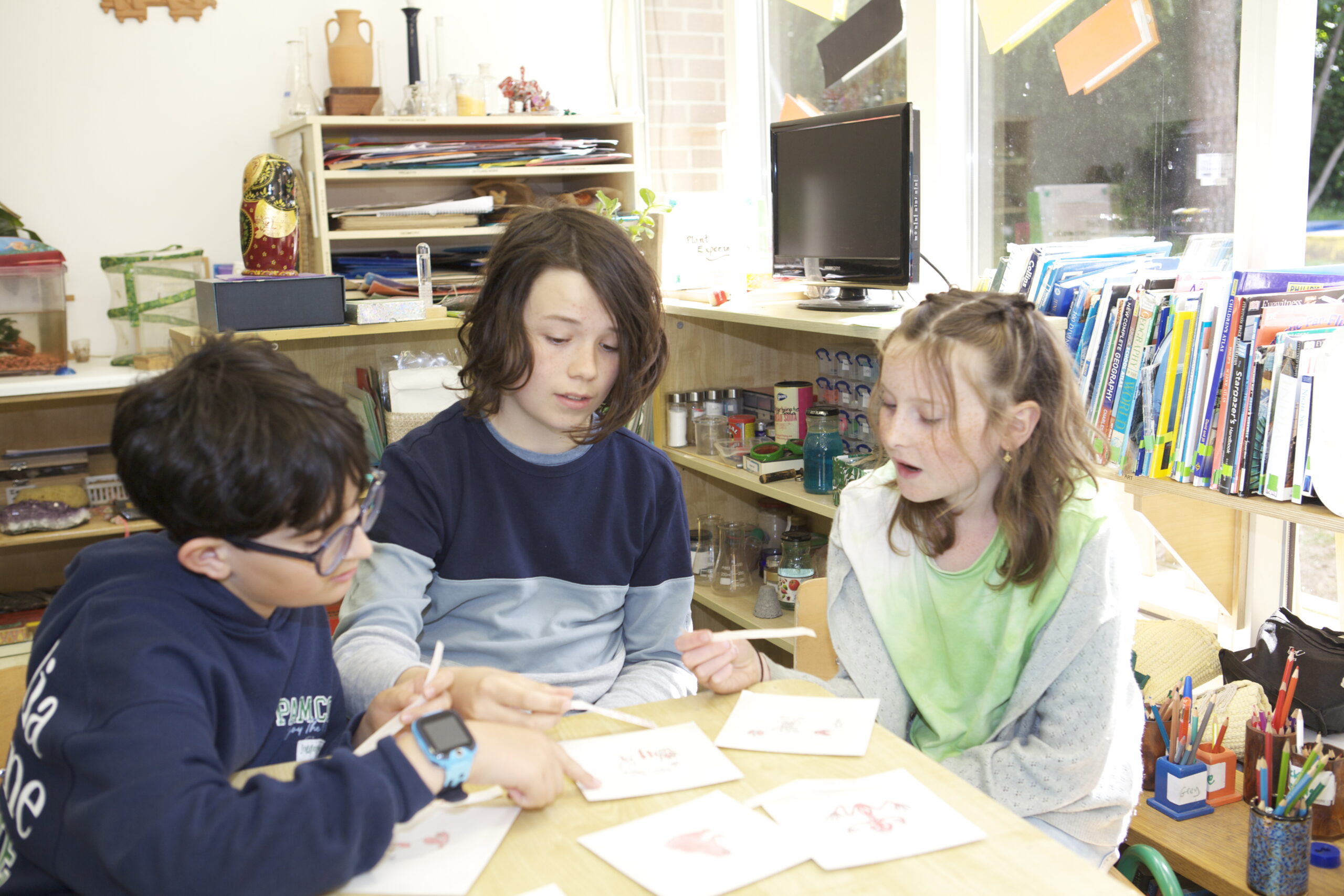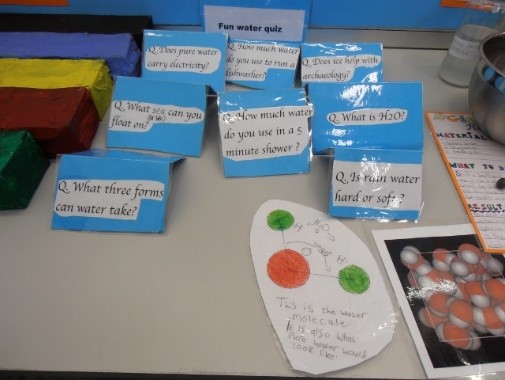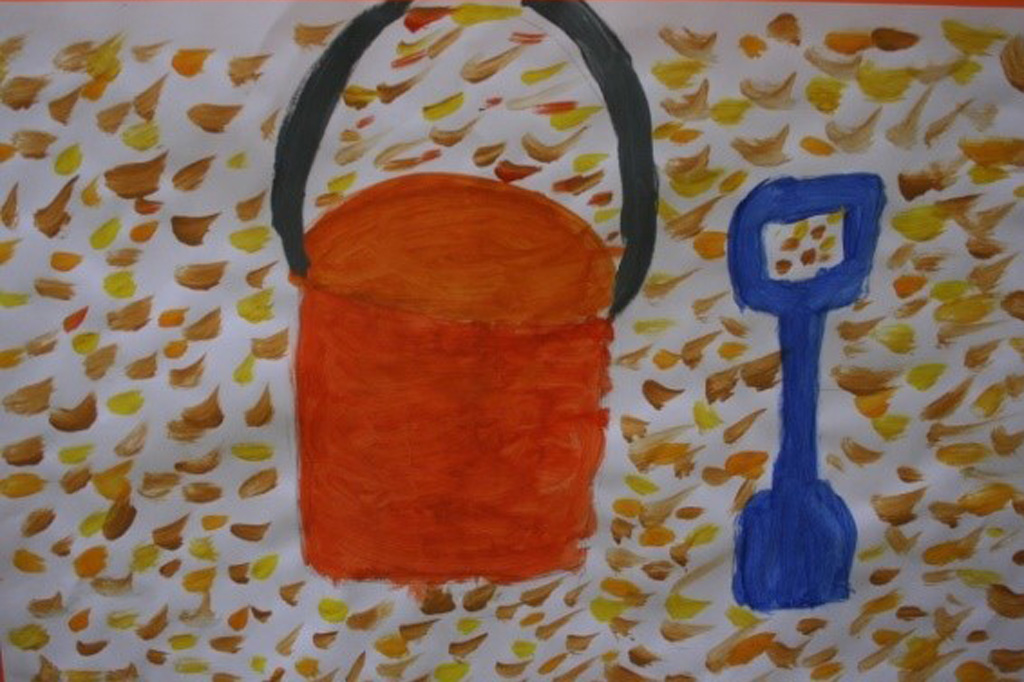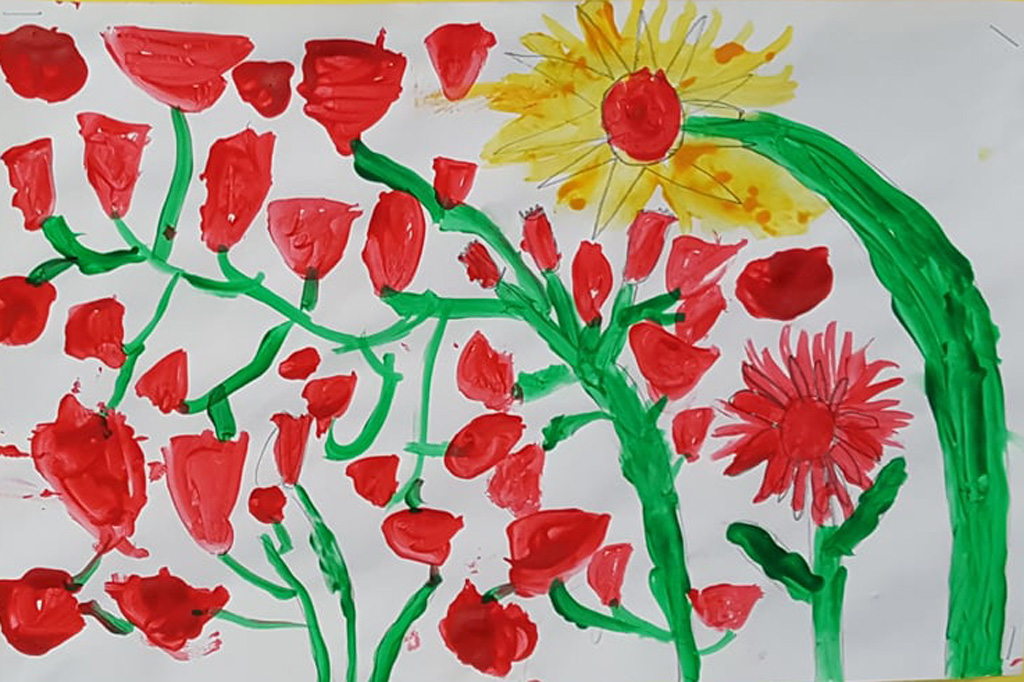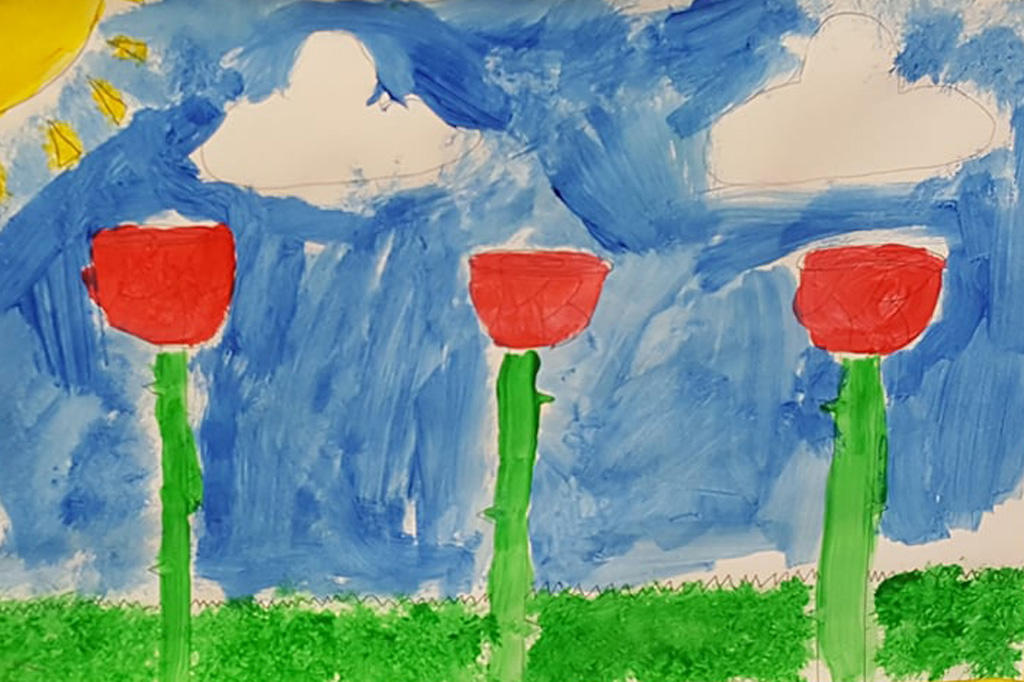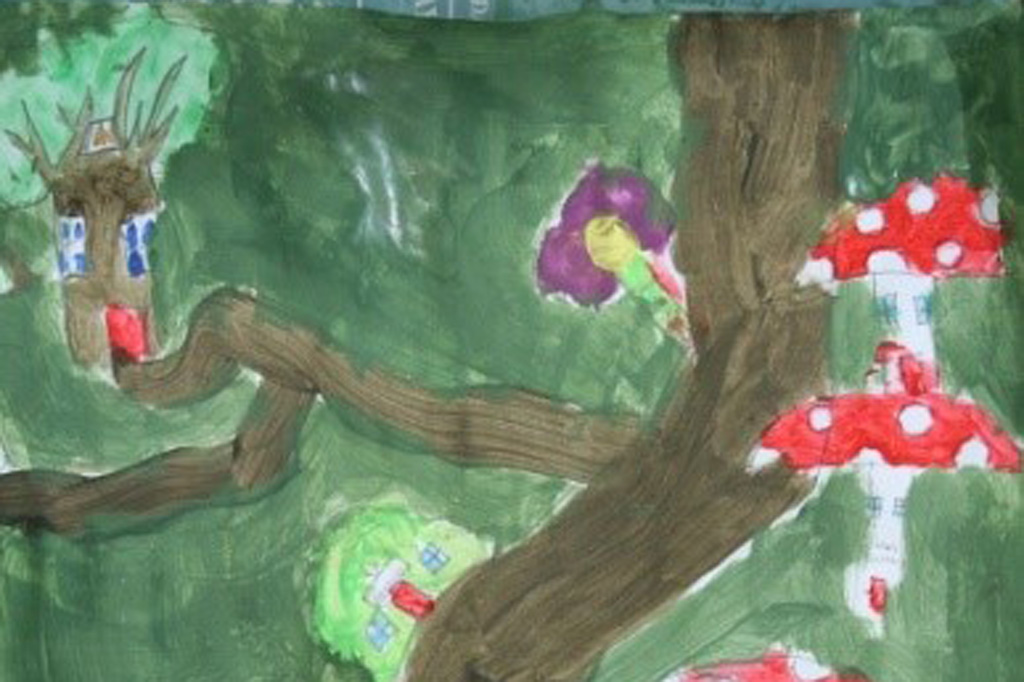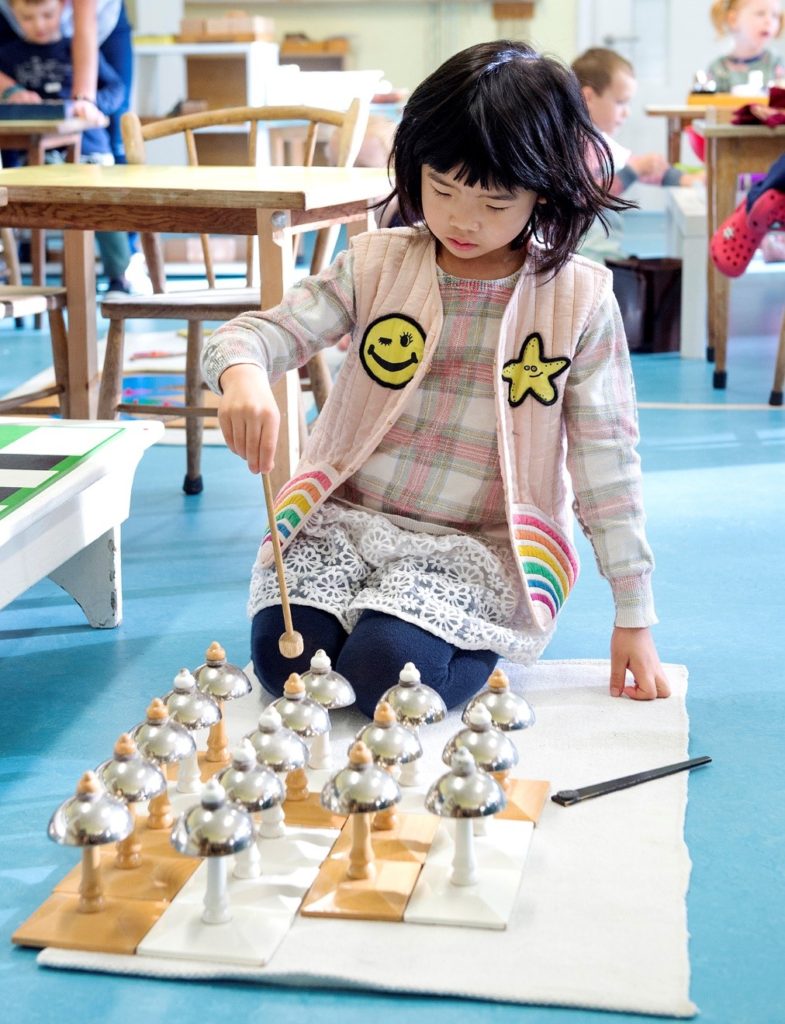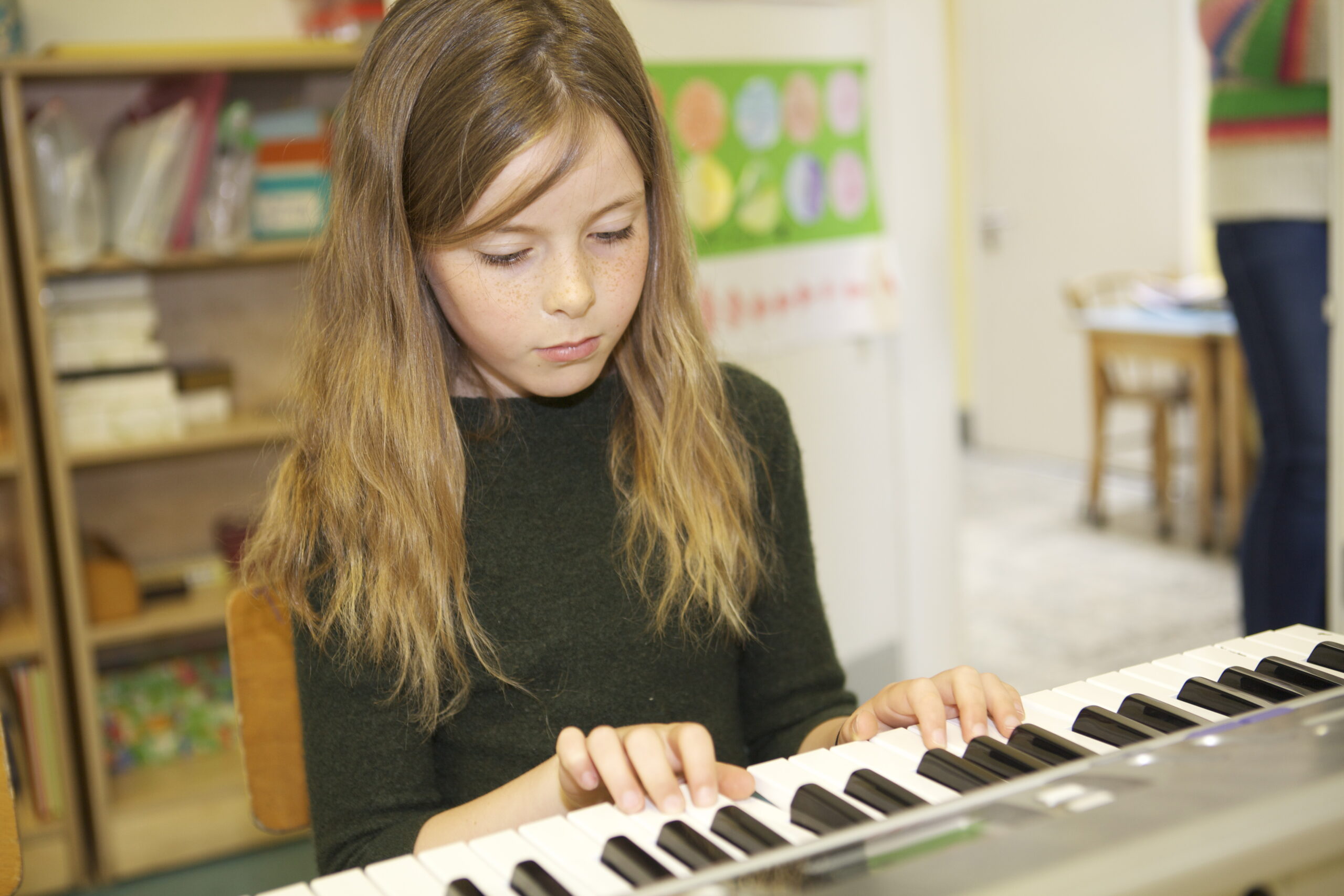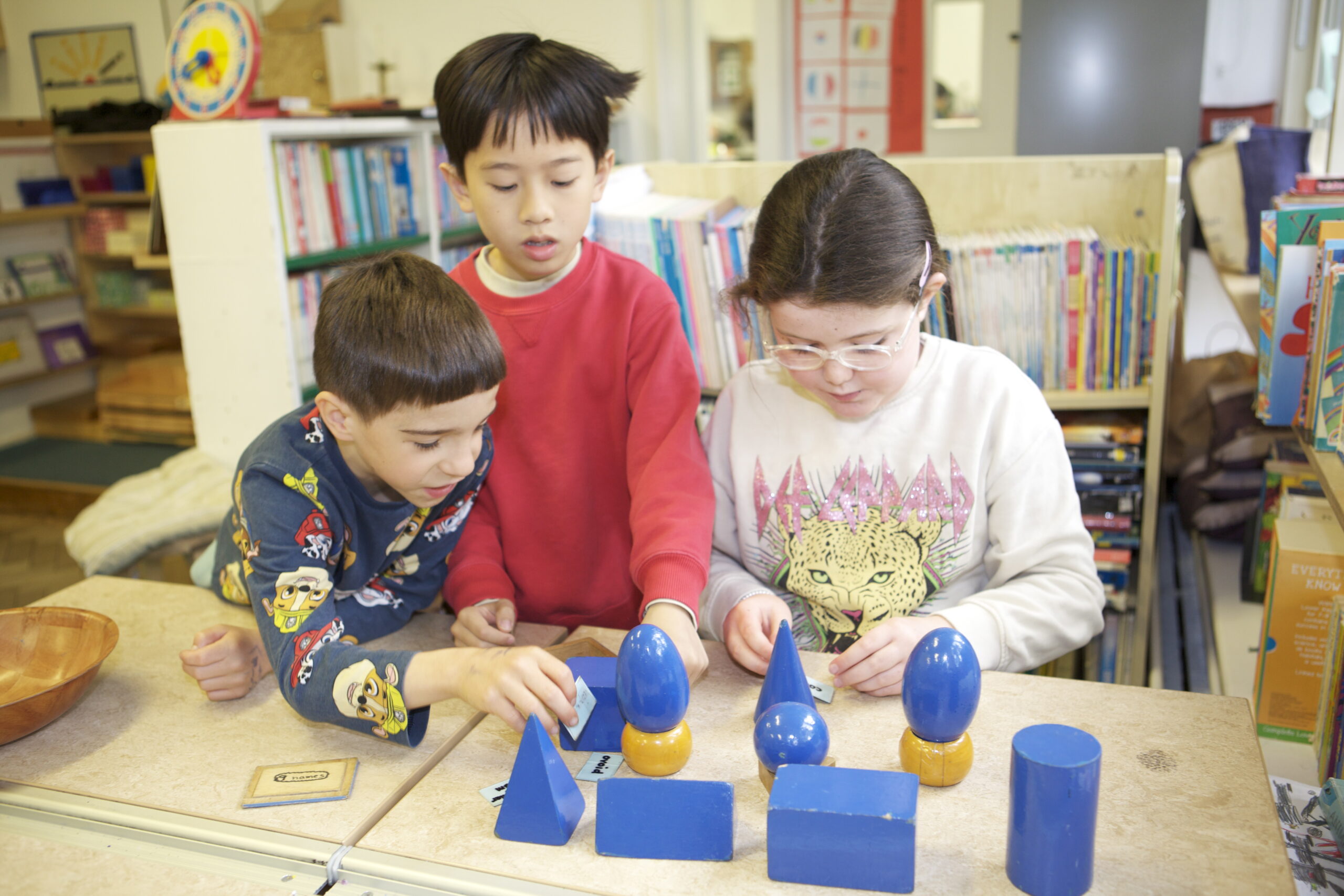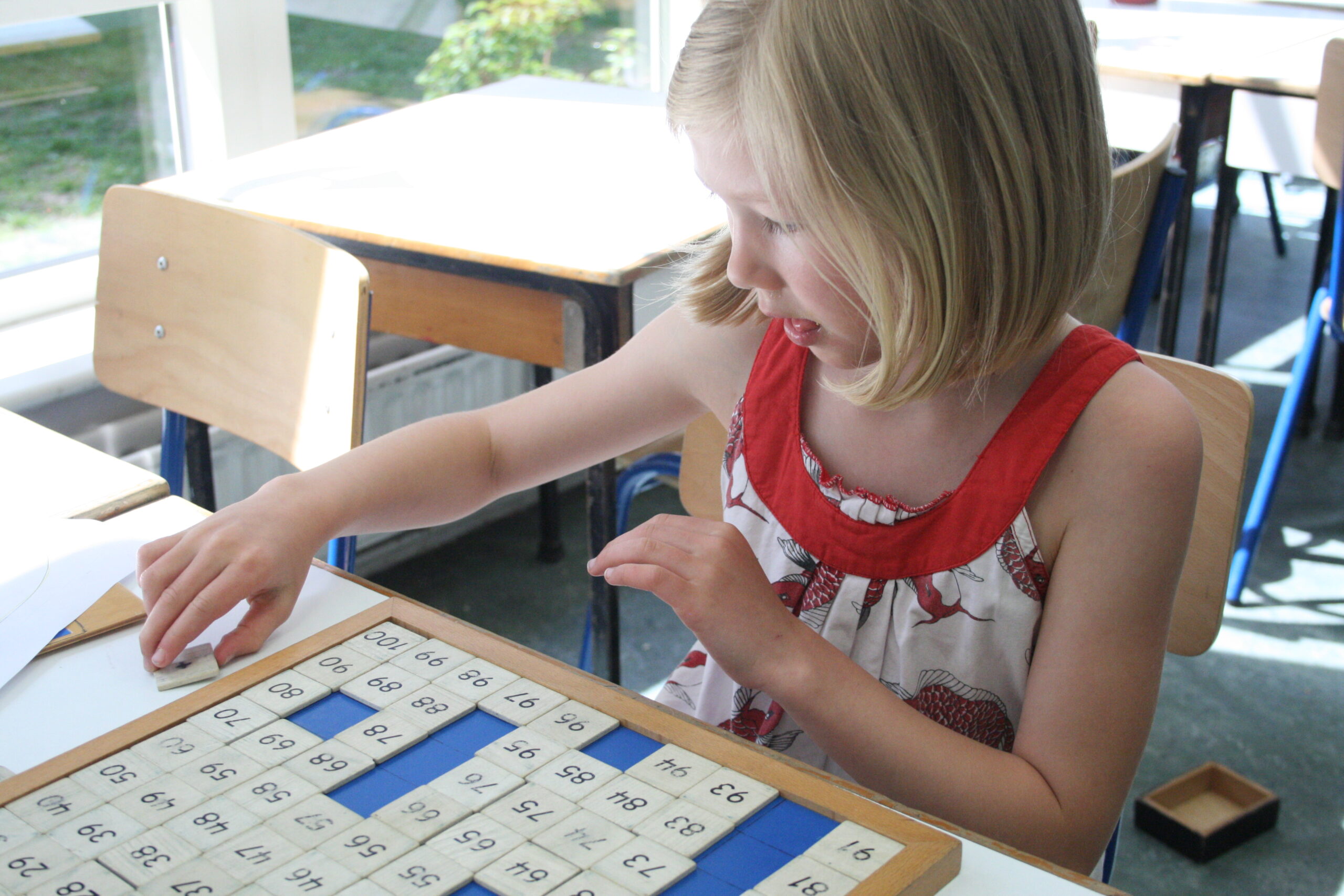Primary 6-12 Years
Montessori primary school is where the foundation built in the Pre-Primary is allowed to flourish and grow.
The Primary school years are divided into two stages, 6-9 years and 9-12 years. Both these classes cover the Irish National School Curriculum, while using the Montessori method which allows children to develop their academic, social and emotional skills.
The Montessori materials help the Primary child abstract key concepts in the academic curriculum while working in a collaborative manner.
LEARN MORE
In the 6-12 year cycle, materials are used with Geometry, Geography, Language, Mathematics, History, and Science. Other curriculum areas like Art, Music, Drama, Sport and a foreign Language are also covered.
Primary children can be characterised by their questioning minds, their ability to abstract and imagine, their moral social orientation and their thirst for research and exploration. Primary is a great period of expansion and growth.
Below are some of the curriculum areas covered.
CURRICULUM AREAS
Language
The children learn about written and spoken language including grammar from a functional point of view. They develop their writing and reading skills in a stimulating environment with age appropriate stimuli and materials. As they get older, they learn debating skills. They are also supported in giving oral presentations to the class.
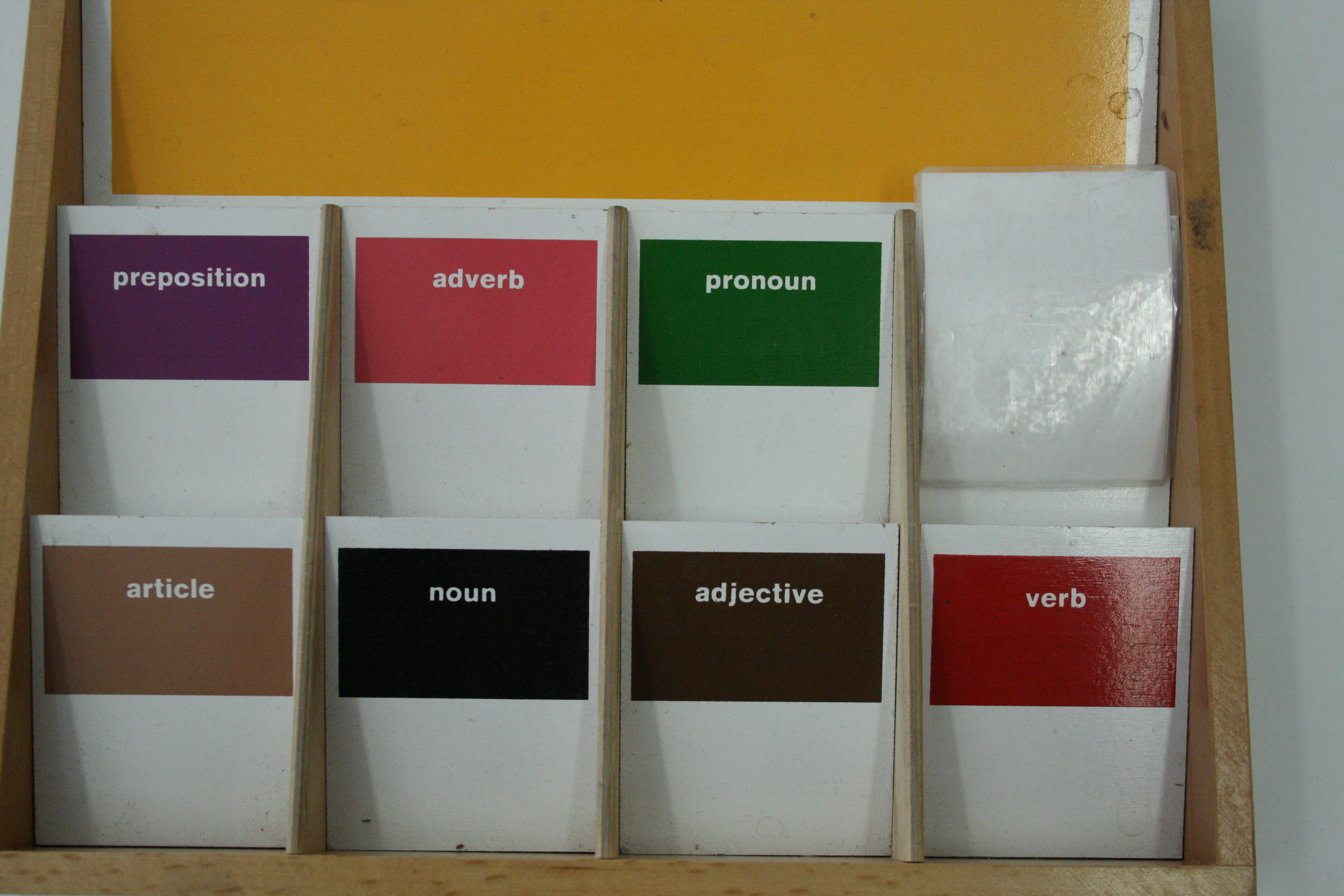
History/Prehistory
The children learn about our indebtedness towards the past and the importance of our role in the present and towards the future. They are reminded through their work of the interconnectedness of humanity and all living things.
Physical and Biological Sciences
The children gain an understanding of the origins and development of the Universe. They also learn about the interconnectedness of living things on earth , the development of life and they also learn about humans’ relationships to this development. They gain a deep understanding of animal and plant classifications and enjoy doing science experiments to support the concepts they are learning.
The children take part in national events such as the RDS Science Fair.
Art
The children learn History of Art and have opportunities to do Art activities using different mediums. They often do Art activities which are interlinked with other curriculum areas. The children take part in national Art competitions run by Texaco and the Association of Independent Junior Schools (AIJS).
Drama
Children learn by ‘doing’ in this regard whether its formal Drama classes or working on tenses of the verb. Concepts are often reinforced through dramatic representation. Drama is also offered as an extra-curricular activity.
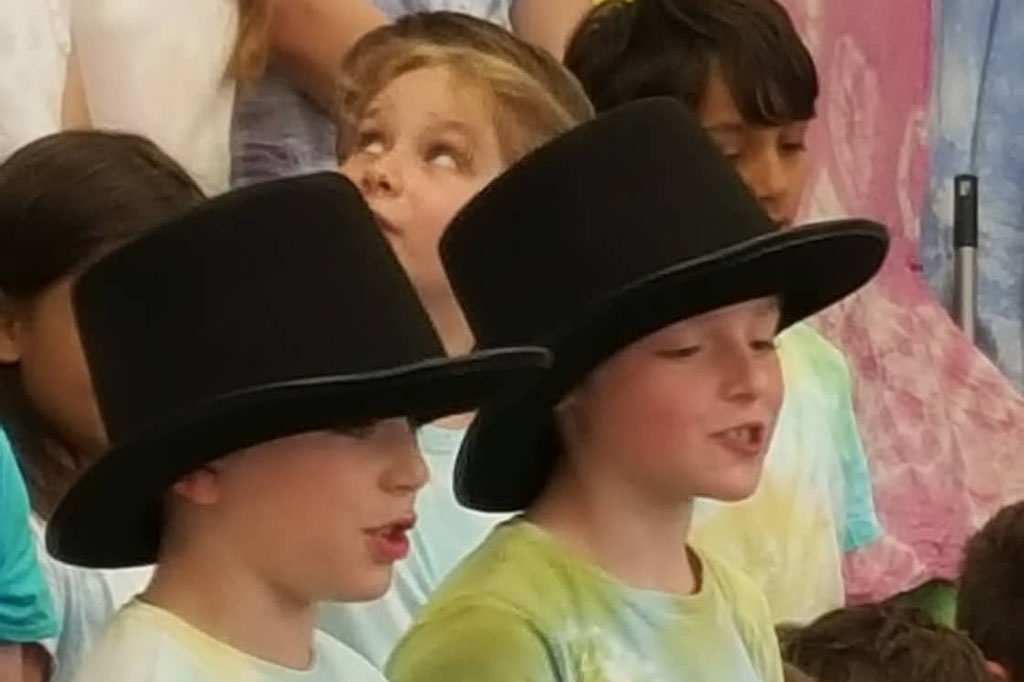
Religion
The ethos of the school is Catholic but all denominations are welcome and attend. The children are prepared for First Holy Communion and Confirmation in small groups if families wish. All children participate in moral formation.
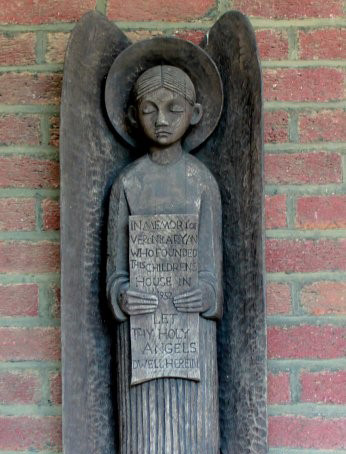
Music
Children are guided in singing activities and events with guitar and piano musical accompaniment. They prepare and put on concerts, plays and dance performances three times a year. They also learn about beat, melody and rhythm. They can learn tunes on the Montessori bells.
Physical Education
Ball and team skills are fostered through sports activities. The 3-6 children follow the ‘Buntús Start Programme’ once a week. The Senior Class do Multisport Skills on Wednesdays and on Friday afternoons a formal physical activity class, such as, Karate, HipHop or Soccer.
See the Learning Environment.
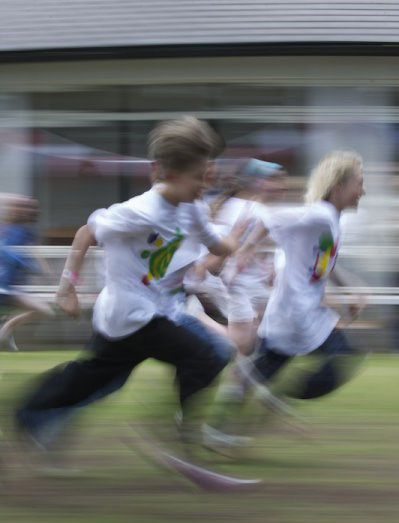
Foreign Language and Irish
Children learn greetings, oral language and songs in a variety of languages, with an emphasis on Irish, so as to attune their ear. Irish lessons start formally in the last year of the 3-6 Class programme and continue into Primary. The children learn the equivalent of the National School Curriculum. Their work is supported through the use of specially made didactic materials and Curriculum books. In the Primary years they start to have formal Spanish classes. The children learn a lot of their English vocabulary by looking at the word derivatives (etymology) from Greek and Latin. This helps with their vocabulary relating to Biology, Geometry, Geography, etc.
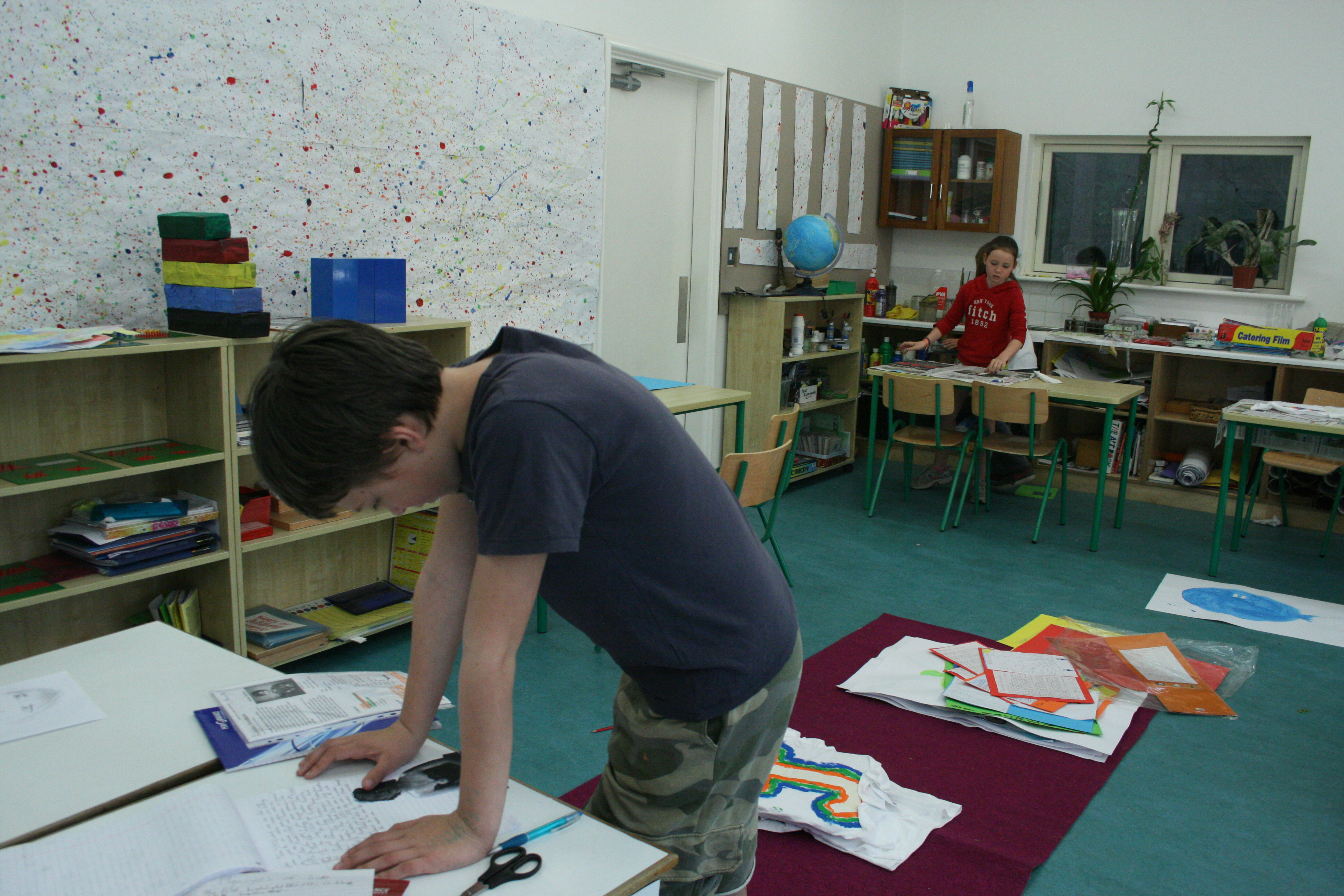
Working with Technology
Children learn to edit and write stories, plays and Powerpoint presentations. They also research areas of interest with a child-friendly World Wide Web.

Mathematics
Environmental Studies
The children show caring towards the world at large. The 9-12 class run a Green Comittee with the support of other classes under the auspices of An Taisce. The flags they have obtained so far are: Litter and Waste, Energy and Water. They are currently working on Travel.

Personal Development
The children are supported in independently organising 'going out' activities or outings connected to their learning, for example art galleries, concerts etc. This leads to great independence through their work.
The 9-12 children have fortnightly meetings to plan their upcoming work. This helps them develop independence in preparation for secondary school.
Montessori education also caters to the elder members of society. The children visit an Alzheimers centre weekly.
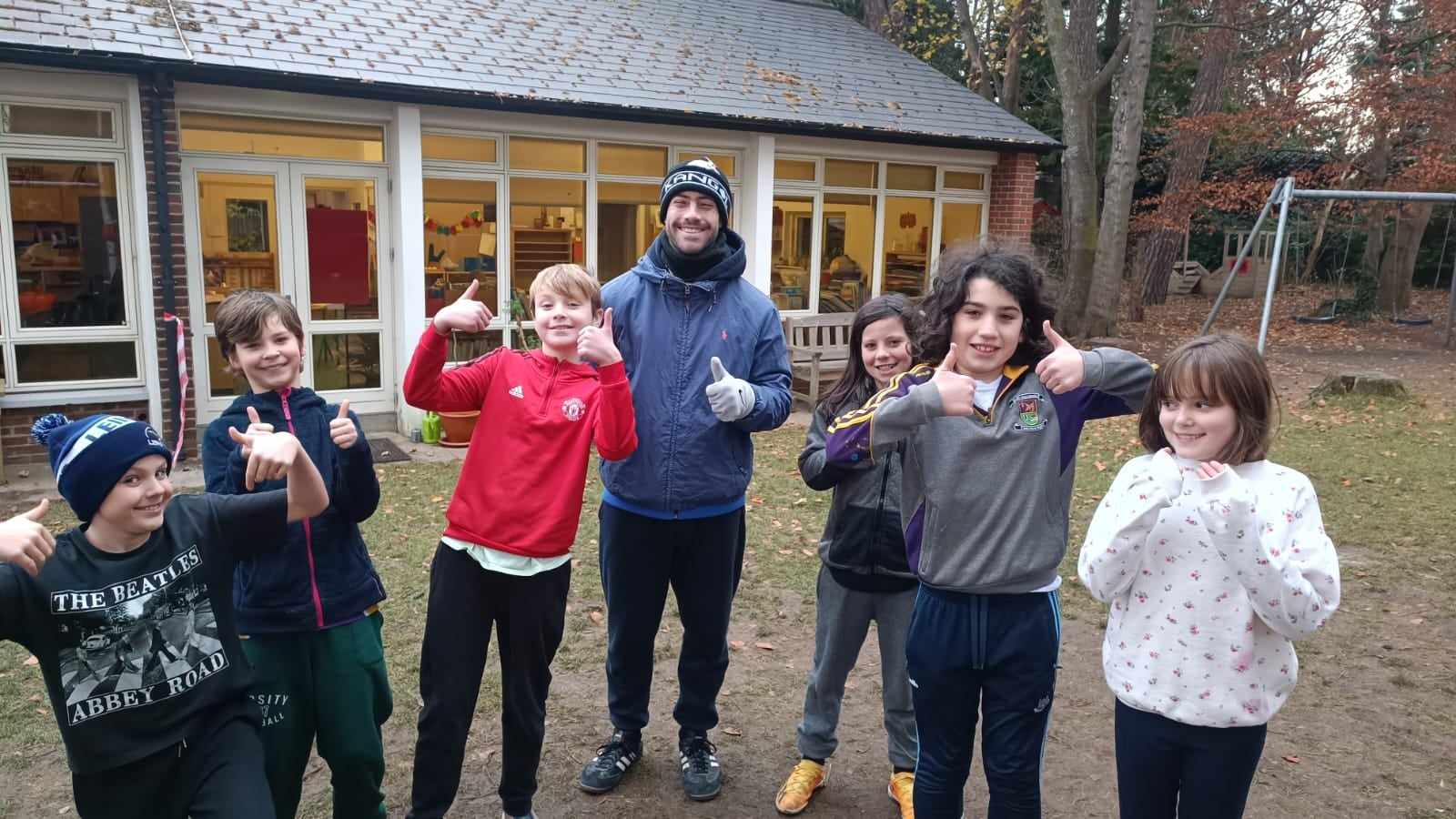
The Montessori Directress and the Montessori materials facilitate the child's learning. Children build their own pattern of learning and develop naturally, creating a strong foundation that will last a lifetime.
At the Children's House Primary, we ensure the children are prepared for life after Montessori, by making sure they cover all aspects of the Irish National School Curriculum. The children do yearly standardised testing as set by the Department of Education. The mixed age group of the class helps foster positive role modelling and supports all children in their journey towards independence.

